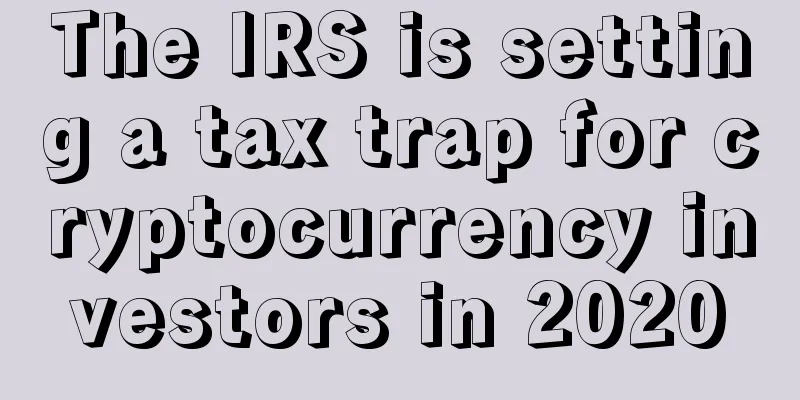The IRS is setting a tax trap for cryptocurrency investors in 2020

|
The U.S. Internal Revenue Service (IRS) is making it harder for taxpayers to hide cryptocurrency gains — intentionally or not — by adding a new question to the top of the new 2020 1040 tax form. Image source: Getty Images The IRS has made its position clear Since 2014, the IRS has considered virtual currency to be a capital asset that must be treated as property for tax purposes. Similar to stocks or bonds, any gains or losses from the sale or exchange of cryptocurrencies are taxed as capital gains or losses. Any income generated from Bitcoin mining or other cryptocurrencies is also taxable. But the Internal Revenue Service (IRS) has been investigating for years to determine how many cryptocurrency investors are underestimating their cryptocurrency holdings. In 2018, Coinbase, the largest cryptocurrency custodian, was forced to disclose information about 13,000 user accounts after being summoned by the IRS. The IRS also sued to force Bitstamp to release more information about a taxpayer who requested a $15,475 tax refund on an amended return. The IRS included the same question on 2019 tax returns, but it was at the top of Schedule 1, which is used to report certain additional income or adjustments to income, said Lewis Taub, a CPA and tax director at Berkowitz Pollack. The problem, he said, is that not many people file Schedule 1 with their returns, so the IRS moved the question directly to the first page of the return this year. (Photo: Getty Creative) “I believe the IRS is treating omitted virtual currency transactions in the same manner that it seeks to identify U.S. taxpayers’ foreign bank accounts,” Taub said. “By asking the question at the top of page one of the income statement, the IRS is making it clear that any income from virtual currency gains or losses must be reported on the income statement.” The supplementary note to tax form 1040 explains how and when virtual currency holdings and transactions must be reported. But cryptocurrencies can be tricky because some people use their virtual currency accounts as payment accounts, such as buying a Starbucks latte with Bitcoin. However, if you complete the purchase using the proceeds from your cryptocurrency investment, it will be a taxable event. However, simply holding virtual currency does not mean you need to pay taxes on it. “If you acquire virtual currency and you don’t spend it or convert it into another currency, there’s no trigger for tax purposes,” he said. “It’s gains that people never realize.” |
<<: ETH 2.0 is here. Can I still buy mining machines to mine ETH?
Recommend
Mining Insights: The ups and downs of the mining journey of the flagship S9
In the field of Bitcoin mining, there is probably...
The development prospects of Ethereum ecosystem
1. Is Ethereum’s decline mainly due to the challe...
Are the moles on the face of a romantic woman open moles? Where are they located?
Everyone has more or less moles. There is a folk ...
Coin Zone Trends: Bitcoin Price Trends Based on Big Data This Week (2017-05-04)
The number of new entrants increases and the pric...
What kind of man is suitable for women with oval faces to marry?
Finding a suitable marriage partner is actually a...
What does it mean that people with moles on their chins are poor?
Poverty can be said to be a curse for a person. A...
The influence of hands on fortune
The history of palmistry is long and profound, wi...
A detailed analysis of the Antminer S17 Pro
Written by: Jack, Layout by: Ann WeChat Official ...
What is the fate of a man with crow's feet? What does it mean for a man to have crow's feet?
Men's crow's feet are messy, is it a good...
Which people with what kind of palm lines are most likely to encounter romantic misfortunes?
Which people with what kind of palm lines are mos...
As competition for IPOs intensifies, the key for Canaan is to maintain its position as the “second largest mining machine company”!
Amidst the cheers from the cryptocurrency and blo...
Understanding the recent popularity of modular public chains in one article
Recently, modular public chains have gradually be...
Is it good for a woman to have a flat nose? What is the personality of a woman with a flat nose?
A flat nose means that the bridge of the nose bet...
Good luck is coming. What physical changes will you experience?
Good luck is coming, what changes have you seen i...









